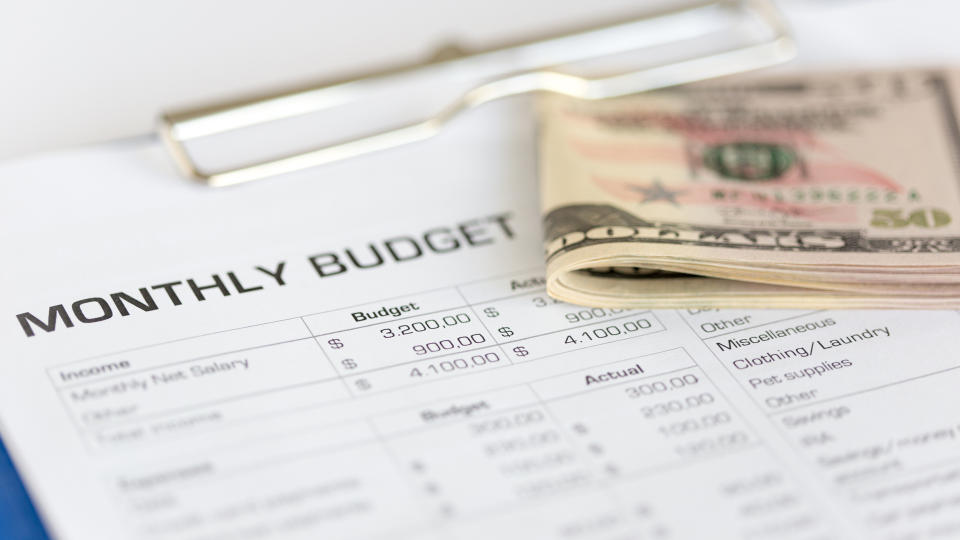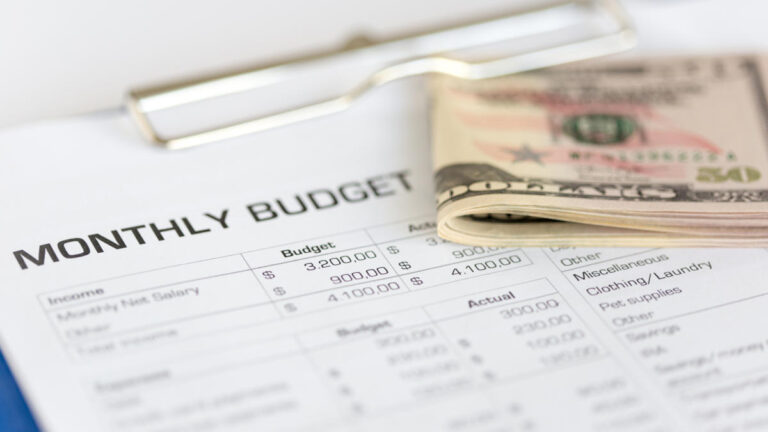
A six-figure income is a milestone. $100,000 doesn't give you much more purchasing power than $99,000, but that extra zero makes you feel more successful. And in a way, that's true.
Check it out: 6 Valuable Everyday Items You Shouldn't Throw Away
Try it: How to get $340 in cash back per year on gas and things you've already bought
Most people won't earn a six-figure salary, but even those who do can find themselves in a worse financial situation than someone making tens of thousands of dollars less if they don't manage their money well. And sound financial management starts with a budget.
GOBankingRates spoke with self-made six-figure entrepreneurs to learn their budgeting secrets that follow a familiar formula that they've refined to account for their own big incomes.
Read more: I'm a thrifty person: 4 items I always buy second-hand to save money
Tech entrepreneur makes six-figure fortune with side hustle
Abid Salahi is the co-founder of FinlyWealth, a credit card recommendation platform that offers users personalized financial solutions, but it goes far beyond a standard card comparison site.
Salahi is technical by profession and by education, with a university degree in Computer Science. Finly started as what Salahi calls a “simple mobile app that connected to an existing credit card,” but he used his technical skills to build an advanced points calculator that has been praised for its accuracy and user experience. The app offers detailed breakdowns with charts and unique features not found in competing tools. The platform leverages real user spending history through a secure bank connection to create custom rewards card offers based on real-time user data.
Finly started as a side hustle, but once Salahi took it on as a full-time project, he began monetizing it towards a full-time salary.
“As a co-founder and shareholder of Finley Wealth, my average monthly salary is approximately $18,000,” he said. “As a tech entrepreneur with a six-figure income, I have extensive experience in financial management and adhering to a disciplined monthly budget.”
Millionaire Mindset: Six-figure budgeting for seven-figure goals
Personal finance experts often recommend budgeting as the first step to financial freedom for people struggling to pay off debt and grow their savings. But it's just as important for high-income earners to keep track of all of their money coming in and going out. Otherwise, they could end up bankrupt just as easily as someone working minimum wage.
But Salahi doesn't want to go bankrupt; he wants to elevate himself from financial comfort to billionaire status, and his budget is the roadmap to get there.
“First, it's important to understand that having an adequate income doesn't necessarily translate to sound financial management,” Salahi says. “Budgeting is an essential habit regardless of your income level. In my case, I strategically allocate my funds across different categories to ensure long-term financial stability and growth.”
Revisiting the 50/30/20 Rule
The 50/30/20 rule is the most popular and basic of all percentage-based budgeting strategies: 50% of your income goes towards essential expenses like housing, utilities, groceries, medical bills, debt repayments, etc. The next 30% goes towards wants, like dining out, concert tickets, 27 different streaming apps, and the things you bought on Amazon this month that you don't really need.
Finally, the remaining 20% ($1 out of every $5) goes towards savings. This could go towards an emergency fund, a down payment on a house, a brokerage account, a tax-advantaged retirement account, or all of the above.
When you earn enough to adjust, adjust for the future.
When you earn $18,000 a month, or $216,000 a year, like Salahi does, you have the luxury of customizing the 50/30/20 rule to leave more for yourself. He had every opportunity to amass significant wealth while succumbing to lifestyle inflation and spending more on the things he wanted. Instead, he tweaked the equation to significantly increase his savings.
“I spend about 30 percent of this amount on fixed expenses like housing, utilities and transportation,” Salahi says, which is 20 percent less than the standard formula would suggest.
“The remaining 20 percent goes toward discretionary spending like dining out, entertainment and travel,” he said. That's 10 percentage points less than the typical 30 percent you'd spend on wants.
So if Salahi were to spend 50% on wants and needs instead of 80%, where would the extra money go? “The other 50% goes into savings, investments, and, if necessary, debt repayment,” he points out. Instead of saving one dollar out of every five, if you have a six-figure income, you can save one dollar out of every two.
No matter how much your budget changes, pay yourself first
If you want to be wealthy, it's no good being a little selfish; it's absolutely necessary.
That doesn't mean you should be greedy or obsessed with money, though. Even if you're passionate about philanthropy, if you live off of paycheck to paycheck, you'll never have the opportunity to give back to at least your full potential. And that's what you'll eventually get if you don't give that first dollar to the person you look in the mirror.
“One of the core principles I follow is to pay myself first,” Salahi says. “I automatically transfer a predetermined percentage of my income into retirement and investment accounts before allocating funds to other categories. This approach helps me prioritize my long-term financial goals and prevent lifestyle inflation from wiping out all my income.”
Currently, that prescribed percentage is 50%, but that may not remain the case for long.
“Budgeting is not a static process,” he says. “It requires regular adjustments and adaptations. For example, during times of economic uncertainty or market volatility, you might temporarily reduce your discretionary spending and use the money to build up your emergency fund or pay down debt. Conversely, if a favorable investment opportunity presents itself, you might temporarily reduce your savings rate to take advantage of that opportunity.”
More from GOBankingRates
This article originally appeared on GOBankingRates.com: I Make Six Figures: Here's My Monthly Budget


